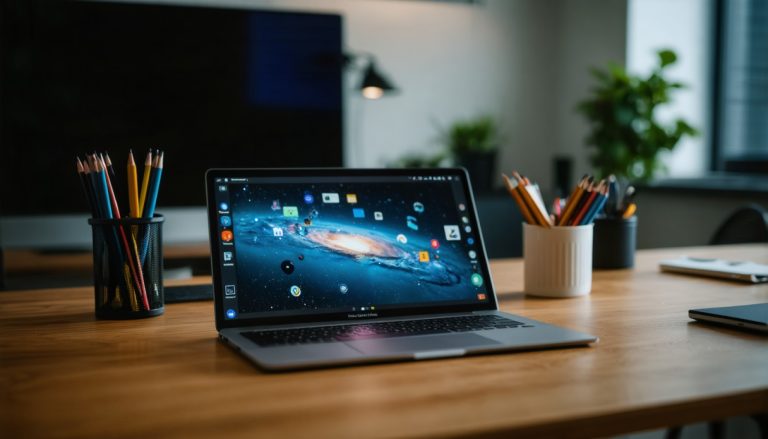
- Meta streamlined its Reality Labs division, including job cuts, to focus on future mixed reality experiences.
- Microsoft emphasized compassion in performance management, offering underperforming employees payout options over traditional improvement plans.
- Google shifted towards a hybrid work model, requiring remote employees to work three days in the office, highlighting a return to in-person collaboration.
- Intel established a mandatory four-day in-person work week, signaling a move away from its hybrid model to foster improved collaboration.
- Samsung launched AI-powered home appliances in India, expanding its strategy of integrating AI into everyday living.
- Xiaomi introduced the Redmi Watch Move, while Oppo and Vivo launched new smartphones, further diversifying the consumer tech market.
- Overall, these developments indicate the tech industry’s continuous adaptation and evolution in response to changing market demands.
This week unfolded as a harbinger of transformation across the tech industry, as titans like Meta, Microsoft, and Google rewrote the playbook on work policies and workforce management in response to shifting priorities and market dynamics.
Inside Meta’s headquarters, winds of change swept through as the Reality Labs division faced significant job cuts. Among the impacted was the Oculus Studios team, known for crafting the Supernatural VR fitness app—a testament to Meta’s evolving vision for mixed reality. By streamlining operations, Meta aims to sharpen its focus on future experiences, hinting at a more efficient and impactful trajectory.
Microsoft stirred the pot with a strategic pivot in performance management. Opting for compassion over compulsion, the company offered its underperforming employees a choice: a neatly packaged payout to leave voluntarily or face the traditional improvement plans perceived more as pitfalls than lifelines.
Google, once a champion of remote work, is now reining in its dispersed workforce. A new mandate beckons certain remote employees to embrace a hybrid model—three days in the office or risk bidding farewell to their roles. This decision underscores a return to collaborative synergy within Google’s walls, juxtaposing the remote norms ingrained during the pandemic era.
Intel joined the chorus with its own call for in-person collaboration. Starting September 1, a four-day on-site work week becomes the new norm, signaling a departure from its hybrid comfort zone. With CEO Lip-Bu Tan at the helm, Intel is on a path to reclaim market dominance, evidenced by a promising $12.7 billion revenue report and a strategic vision for streamlined, empowered operations.
Delving into the consumer space, Samsung unveiled an India-centric rollout of AI-enhanced home appliances, heralding a significant push towards smarter, interconnected homes. The move marks a pivotal shift in Samsung’s strategy, truly embedding artificial intelligence into the daily lives of consumers.
Meanwhile, fresh products punctuate the market landscape. Xiaomi introduced its Redmi Watch Move, a feature-rich smartwatch designed for fitness aficionados, complete with an AMOLED display and robust health-tracking capabilities. Not to be outdone, Oppo debuted its K13 5G smartphone, boasting a formidable 7,000 mAh battery and lightning-fast charging, while Vivo launched the T4 5G, offering a power-packed battery and sleek design tailored for the modern digital nomad.
In essence, this week’s developments sketch a vivid tableau of the technology sector’s relentless drive to adapt and thrive, amid the ever-evolving demands of a digitally connected world. These strategic shifts across companies and product lines signal a deeper narrative of resilience and reinvention that defines today’s tech landscape.
Surprising Shifts in Tech: Inside Meta, Google, Microsoft, and More
Meta’s Multi-Faceted Focus on the Future
Meta’s ongoing transformation within Reality Labs highlights its strategic shift towards more streamlined operations, particularly post the layoffs affecting the Oculus Studios team. The broader implications are not just internal; they speak to Meta’s ongoing redefinition of virtual and mixed reality experiences.
Real-World Use Cases for Meta’s Innovations
Meta continues to harness mixed reality to revolutionize sectors like education and remote collaboration. Products from Reality Labs aim to seamlessly integrate virtual environments in everyday tasks, enhancing creativity and productivity.
Market Trends
With AR and VR market size projected to exceed $209 billion by 2022 according to MarketsandMarkets, Meta’s strategic realignment shows a commitment to future market demands and monetization opportunities.
Microsoft’s Compassionate Performance Management
Microsoft’s notable shift in performance management from punitive to supportive reflects a growing HR trend favoring employee well-being and retention over harsh performance metrics.
How-To Navigate Performance Management Alternatives
Employees facing improvement plans can focus on skill development and open communication channels with management to align expectations.
Remote Work Revisited: Google and Intel
Amid a tech industry grappling with post-pandemic changes, Google’s hybrid work mandate signals a pivot back to in-office collaboration. Intel follows suit, prioritizing on-site work for energized teamwork.
Employee Guide: Transitioning from Remote to Hybrid Work
1. Cultivate Flexibility: Embrace a fluid schedule but remain adaptive.
2. Enhance Productivity: Utilize tools for effective time management.
3. Foster Connections: Reinforce workplace networks and collaborations.
Samsung’s AI Push in the Consumer Market
Samsung’s AI-driven home appliances launch in India marks a significant strategic pivot into smart home tech, elevating everyday living with personalized, intuitive technology.
Life Hacks with AI Home Appliances
Incorporate AI appliances for energy-saving routines and improved efficiency. Setup systems to optimize daily schedules and enhance convenience via automation.
Emerging Tech Hardware
With the release of new devices like the Redmi Watch Move and Oppo K13 5G, consumers are treated to innovative technology focused on performance and utility.
Product Comparison: Redmi Watch Move vs. Oppo K13 5G
– Redmi Watch Move: Features an AMOLED display, health-focused capabilities.
– Oppo K13 5G: Delivers long battery life with a massive 7,000 mAh battery.
Price and Accessibility
– Redmi Watch Move: Affordable entry cost, widely available.
– Oppo K13 5G: Mid-range price with high-end battery specs.
Key Insight: Tech’s Drive to Innovate and Adapt
As the tech industry evolves, understanding strategic pivots in workforce and product strategies gives insight into future trends. Companies that align closely with emerging consumer needs and market demands will continue to thrive.
Quick Tips for Navigating Tech Changes
1. Stay Informed: Keep up with tech news and adapt to workplace changes.
2. Embrace Innovation: Actively seek and utilize new technologies.
3. Prioritize Skill Growth: Hone relevant skills to enhance career prospects.
For more insights on evolving tech industry trends, visit Microsoft, Meta, Google, Intel, and Samsung.
By staying informed, adaptable, and open to new technologies and workplace strategies, you can remain competitive and resilient in the ever-changing tech landscape.



